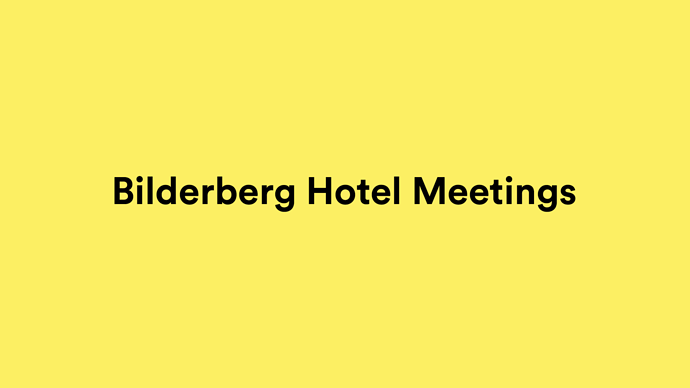Max Blumenthal of the Gray Zone brought my attention to the Bilderberg meetings. He likes to go there and try to heckle people as they’re entering and leaving, until the security guards zero in on him.
Of course they’re very secretive in terms of the actual presentations and conversations that happen there.
Out of the list of participants, I recognize:
Altman, Sam (USA), CEO, OpenAI
Schmidt, Eric E. (USA), Former CEO and Chair, Google LLC
Thiel, Peter (USA), President, Thiel Capital LLC
Kissinger, Henry A. (USA), Chairman, Kissinger Associates Inc.
Carney, Mark (CAN), Vice Chair, Brookfield Asset Management
These are all common subjects of Whitney Webb’s deep dives.
Among other things, Henry Kissenger and Eric Schmidt coauthored a book on their vision for AI becoming a crutch that everyone relies upon, that the people running it can use to control what people see and hear, and to spy on them.
And JD Vance, Trump’s pick for VP, is Peter Thiel’s protege. Peter Thiel for those who aren’t familiar was involved in the founding of Facebook, Paypal, and Palentir, an organization whose purpose is to aggregate all the data being collected by various big tech platforms and to create detailed profiles on individuals.
The common theme that you will see is the development of a surveillance and control grid, and the merging of corporate and state power, which the World Economic Forum calls “Public Private Partnerships”, and which Mussolini famously called “fascism”.
As a programmer I notice that a major portion of the job postings I see are in service to that surveillance and control grid in some way. Which tells me that large sums of investment capital are devoted to its construction. There’s also a tremendous amount of human labor and energy consumption being devoted towards “AI”, the development of these large language models… would that be happening without enormous capital investments? Between some very wealthy players throwing their weight around, and the long tail of investors and implementors influenced through indoctrination, a major part of economic activity is being shaped to serve this agenda.
I do not take it as a foregone conclusion that “this is where we’re going” and “it’s the inevitable consequence of competition in a free market”. It falls to us as individuals to cultivate our own moral code, and to bring our actions into alignment with that morality. A business is a vehicle for change, and money is the gas in the tank. The vehicle needs a driver, and that is you. It is your ethic, what change you actually believe is worth creating in the world that is the driver. The money is simply there to enable the journey.
